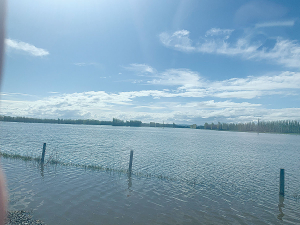OPINION: Our hearts go out to the farmers and rural communities in Southland and Otago who are battling an onslaught of adverse weather.
Otago farmers were amid a drought a few weeks ago with the region being declared an adverse event for this reason. Then almost overnight, the region has been swamped by rain. What can one say?
In the case of Southland, it’s been wet and cold for months now and the new rains have just made the problem worse, and looking ahead, the weather forecasts don’t offer any respite.
The result is feed shortages for animals and, in the case of Otago, potential delays in getting crops in the ground with pastures inundated and potentially damaged. As we go to press, the full extent of the damage in Otago is still unknown as farmers are too busy trying to get basic infrastructure back in operation – for example, milking sheds – and haven’t had time to stop and properly assess the damage to their farms.
In Southland the misery continues. There are now concerns for the mental health of farming families and Federated Farmers is doing a significant publicity awareness programme to tell farmers where to go to get help; also urging them to look after themselves, get some rest, and rightly pointing out that decisions made when people are tired may not always be the best ones.
All this comes at a time when the farming sector continues to face pressure in multiple directions: lower prices for lamb, still-high interest rates and land use change which poses a serious threat to our livestock sector and the NZ economy.
Sadly, it seems adverse events are now almost a way of life. The effects of Cyclone Gabrielle and other adverse weather events along the east coast of the North Island are still being felt, with some farmers there still without proper access to their farms.
It’s said that farmers and rural communities are resilient and come together in a crisis, but this is surely being tested now on an ongoing basis.

















